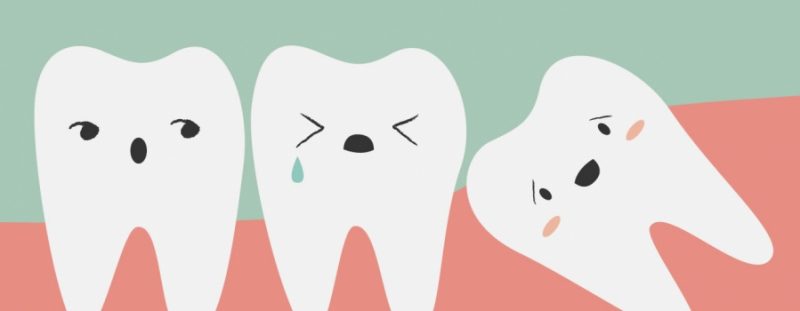Wisdom tooth removal
Wisdom tooth extraction is a surgical procedure to remove one or more wisdom teeth — the four permanent adult teeth located at the back corners of your mouth on the top and bottom.
If a wisdom tooth doesn’t have room to grow (impacted wisdom tooth), resulting in pain, infection or other dental problems, you’ll likely need to have it pulled. Wisdom tooth extraction may be done by a dentist or an oral surgeon. Some dentists and oral surgeons recommend wisdom tooth extraction even if impacted teeth aren’t causing problems, as a preventive measure against potential future problems.

Wisdom teeth are the last of your teeth to come in, or erupt, through the gums. Sometimes a wisdom tooth becomes impacted, or stuck below the surface of your gums, and grows at an odd angle, possibly causing complications.
Wisdom teeth, or third molars, are the last permanent teeth to appear (erupt) in the mouth. These teeth usually appear between the ages of 17 and 25. Some people never develop wisdom teeth. For others, wisdom teeth erupt normally — just as their other molars did — and cause no problems.
Many people, however, develop impacted wisdom teeth — teeth that don’t have enough room to erupt into the mouth or grow normally. Impacted wisdom teeth may erupt only partially or not at all.

An impacted wisdom tooth may:
*Grow at an angle toward the next tooth (second molar)
*Grow at an angle toward the back of the mouth
*Grow at a right angle to the other teeth, as if the wisdom tooth is “lying down” within the jawbone
*Grow straight up or down like other teeth but stay trapped within the jawbone
You’ll likely need your impacted wisdom tooth pulled if it results in problems such as pain, infection, damage to an adjacent tooth, development of a fluid-filled sac (cyst) around the wisdom tooth, damage to surrounding bone, complications with orthodontic treatments to straighten other teeth

Preventing future dental problems
Dental specialists disagree about the value of extracting impacted wisdom teeth that aren’t causing problems (asymptomatic).
Here’s the rationale for preventive treatment:
*It’s difficult to predict future problems with impacted wisdom teeth.
*Symptom-free wisdom teeth could still harbor disease.
*Having your wisdom teeth makes you vulnerable to gum disease and tooth cavities.
*Removing impacted teeth lowers the risk of potential problems.
*Serious complications rarely happen in younger adults.
*Older adults may experience difficulty with surgery and complications after surgery.
*Other specialists argue that there isn’t enough evidence to suggest that impacted wisdom teeth not causing problems in young adults will later cause problems. Therefore, they suggest that the expense and risks of the procedure don’t justify the expected benefit.
- Published in Dental Care, Tin tức

